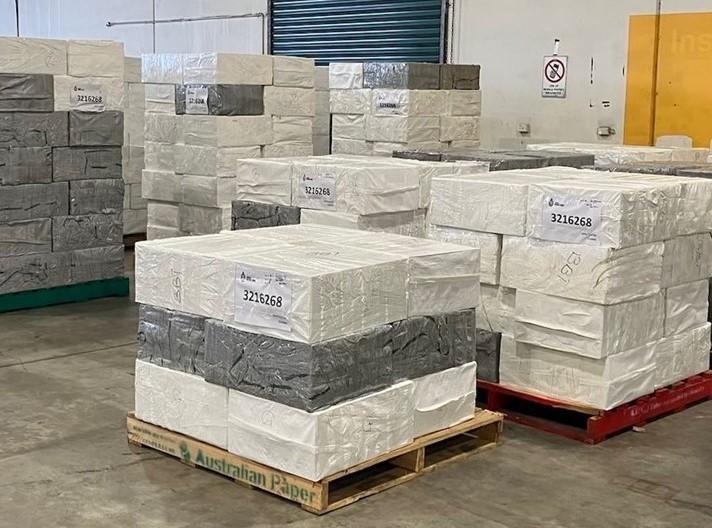Previous: Foreword
Serious and organised crime cost the Australian economy up to $82.3 billion last year, according to the Australian Institute of Criminology (AIC). Its destructive and pervasive illicit ventures impact everyone, often in unseen ways.
In isolation, the impacts to individuals can appear insignificant or too distant from the source to identify, but when the full spectrum of serious and organised crime harms and costs are combined, we can easily see the enormous damage absorbed by Australian communities.
The modern organised criminal is often more of a business person than a thug. Like any business person, they are driven by profit and opportunity. However, these criminal networks ruthlessly exploit any opportunity with no regard for Australia’s laws or the victims they create. Whether based locally or offshore, organised crime actors and their illicit activities make our communities less safe, exploit our citizens, including those most vulnerable, and undermine legitimate business. Criminals evade tax that working Australians pay. They defraud and corrupt government-funded programs and services, placing increased pressure on the economy and more strain on taxpayer-funded essential services and programs. Some criminal networks pose a national security threat, with their criminal capabilities desired by state and non-state actors alike.
The serious and organised crime business model is rapidly evolving allowing criminal networks to accelerate the scale and pace of their illicit activities. Its impact is also becoming more visible with increased violence impacting our communities, more aggressive and coercive standover tactics threatening legitimate businesses, community cohesion and safety, and vulnerable people.
We are seeing Australia’s highest threat criminal networks:
- Adopt and exploit technology to scale their illicit business ventures, hiding their activity in new and innovative ways, including through the use of digital currency and markets and bespoke encrypted communications. They are also becoming more adept at producing and accessing 3D-printed weapons, as well as leveraging artificial intelligence to increase profits through large scale victimisation.
- Operating and targeting Australia from offshore and online, operating remotely or virtually, and hiding in safe havens making detection and disruption more difficult. Many of Australia’s highest threat criminal networks continue to operate from offshore, living luxurious lifestyles while often far away and protected from the hands of Australian law enforcement.
- Undertaking ‘crime-as-a-service’, making it easier than ever for serious and organised crime groups and other malign actors to operate at a distance and outsource their dirty work – including acts of violence against rivals. Youth gangs and vulnerable people are being targeted online and in the real world and are hired to carry out violent acts in public, with the real masterminds hidden from view, offshore or behind encrypted communication platforms. There are an increasing number of cases of organised crime entities carrying out acts in support of state-sponsored activity or other ideological grievances.
Australia has strong enforcement powers but serious and organised crime is no longer just a policing problem – it puts added pressure on our health sector, erodes our economic prosperity and tax base, contributes to deteriorating social cohesion, undermines our border sovereignty and impacts our overall sense of security and safety. Criminal networks now operate across our entire society, requiring a whole-of-society effort in response. We are well supported by robust policies, legislation and regulation and a strong approach to coordinated national enforcement efforts, as well as working collaboratively with industry and our communities. However, constant vigilance and evolution of our collective approach to targeting and disrupting organised crime is essential if we are to create an Australia more hostile to these criminal networks.
Our citizens
Australians are increasingly bearing the brunt of serious and organised crime, with many crimes able to be linked back to the presence of illicit drugs in our communities.
Drug-related crime and violence – like home invasions, assaults and theft – are often driven by users seeking to fund their drug consumption.
Wastewater analysis indicates drug consumption is now higher than ever across the Australian community. This ongoing high demand is being exploited by serious and organised crime groups that profit from demand for these substances.
Illicit drugs make us all less safe. Many people, including users and non-users, are victimised and experience resulting physical, mental and financial harms. Illicit drug use contributes to domestic and family violence, and drug driving is now a leading cause of fatal crashes, surpassing drink driving. The AIC also attributed nearly 42% of homicides to methylamphetamine use. Serious and organised crime-related violence, mostly related to drug debts and turf wars, has played out in public spaces, with people killed in cases of mistaken identity and indiscriminate shootings. Arsons have also destroyed homes, businesses, means of support and taken lives. The cost of drugs is not limited to users and their families – it impacts all of us whether directly or indirectly.
Offshore scam centres are robbing Australians of significant amounts of money, taking peoples’ life savings, retirement investments and identities. This causes significant flow-on harm to these victims, including the direct costs, and costs to respond to these cyber-enabled crimes, as well as the lengthy and stressful process of resolving identity theft. In many cases, identities may not be fully recoverable and the victimisation can be enduring. There are also potential flow-on impacts for victims, like having their stolen identity linked to and implicated in other crimes, and being denied credit.
Online networks are exploiting and causing extensive harm to children. Some are engaging in sadistic online extortion, not merely motivated by profit but also by the untold harms they can cause to innocent and vulnerable people. This includes profound psychological damage, and we know online sextortion has been linked to numerous youth suicides.
These networks are real – and live and operate within our Australian community.
There are now decentralised networks of distinct, yet overlapping online chatgroups on various communications platforms. Members engage in a spectrum of online and physical criminal activities including child sextortion, sadistic online exploitation, violent extremism, cybercrimes and soliciting violence as a service. In addition to misogynistic and violent rhetoric, members often use these tactics to further manipulate and control victims to produce increasingly harmful and violent content. Using their online network, members collaborate, compete, brag, learn from one another, recruit, encourage and normalise increasingly harmful and violent criminal behaviour.
Members are predominately young males with varied motivations. They conduct these activities for financial reward, increased status/notoriety, retaliation, or for extreme ideological reasons. They largely target English-speaking countries – including Australia – through cyber intrusions, sadistic online exploitation, threats against critical infrastructure, bomb threats targeting schools and hospitals, and a trend encouraging members to shift towards physical real-world violence.
Organised crime actors are also systematically defrauding government-funded programs such as the National Disability Insurance Scheme (NDIS), stealing taxpayer money intended to help our most vulnerable citizens. Some serious and organised crime groups coercively control vulnerable NDIS clients, resulting in funds lining the pockets of criminals with substandard – if any – support or services for the legitimate client. There are clear flow-on impacts in terms of the mental anguish this causes victims, their loved ones and their communities.
Our business owners
Serious and organised crime groups target and seek to exploit legitimate businesses and business owners.
Serious and organised crime can penetrate markets and create unfair competition – propping up their front businesses with their ill-gotten gains. They also forcibly take over market share of some sectors, like tobacco, forcing out legitimate businesses through extortion, intimidation and violence. Small businesses in close proximity to fire bombings are also impacted by loss of foot-traffic and revenue. Serious and organised crime groups are adept at circumventing border controls and smuggling in goods without paying required taxes and excise, giving them a commercial advantage over law-abiding citizens and businesses.
Beyond market distortion, the effects of serious and organised crime have driven up business costs, and by extension, costs for consumers. Companies need to invest heavily and continuously in cybersecurity to protect their data against attacks. Arson and other violence is driving up insurance costs for legitimate businesses including tobacconists and nearby retailers.
Serious and organised crime groups recruit or embed insiders within organisations and legitimate businesses to access sensitive information such as databases of identities, addresses or vacant properties that they can exploit for their criminal purposes. The cumulative pressures caused by serious and organised crime penetration of the business sector impacts not only the commercial environment, but also businesses’ safety, reputation and viability.
Our community
The impact of harm caused by organised crime creates many direct and indirect victims. It reduces the availability of health services and first responders for others in need in our communities, it forces increased expenditure on health resources to manage drug problems, and it diverts and overwhelms law enforcement on high volume organised crime at the expense of other community safety priorities. The exploitation of government-funded programs by organised criminals can also impact community perceptions about the trustworthiness and benefit that such services can provide the vulnerable. Many frontline personnel are themselves victims of drug-related violence while on the job, jeopardising the wellbeing of critical service providers in our community.
The rapidly increasing grooming, recruitment and corruption of young people by organised crime entities will have long lasting impacts on our future, while increasing pressure on social workers, mental health services and youth detention centres.
Through increased insurance premiums, inflated housing prices (or deflated due to crime in the area), serious and organised crime directly impacts cost of living for many Australians. Even cultural institutions like sport are affected, with illegal betting – often linked with serious and organised crime – undermining fairness and credibility of competitions.
Organised crime-driven violence is spilling onto our streets and communities. It used to be that ‘crooks targeted crooks’ but that is changing with innocent bystanders and businesses falling victim to both directed and misdirected violence. Daylight shootings and arsons are happening as Australians go about their daily lives. Some organised crime cohorts are carrying out particularly heinous and brazen attacks on rival crime networks and their families, with the filming and sharing of footage of these acts further spreading fear in our communities. This level of violence and fear will have further impacts on our community, making them feel less safe and less secure as they go about their daily lives.
Illicit tobacco costs Australia an estimated $4 billion per year.
Since 2023, serious and organised crime groups have escalated efforts to control the black market in Australia, resulting in:
Australia’s lucrative illicit tobacco market continues to trigger violent crime, endangering the Australian community as serious and organised groups vie for market control. Since 2023, serious and organised crime groups’ efforts to seize and maintain control of the illicit tobacco and vape market in Australia has escalated and resulted in more than 200 fire bombings, at least 3 homicides (including an innocent civilian) and multiple other non-fatal violent attacks. The billions of dollars of profit available continues to drive serious and organised crime involvement in illicit tobacco – now estimated to represent the majority share of Australia’s tobacco market. Legitimate businesses are struggling to compete, with many closing due to threats against their lives and livelihoods.
The financial and corresponding social costs to Australia are high. Illicit tobacco costs Australia billions of dollars in lost excisable tax (estimated $3.3 billion dollars in 2023–24). This deprives the Australian community of funds used to support the economy and essential services.
Our nation
The economic impacts of serious and organised crime are staggering. It costs Australia up to $82.3 billion per year in both direct and indirect costs. In addition to its impact on our economic prosperity, the damaging effect of organised crime on our citizens, communities, and businesses threatens Australia’s national interest and erodes our resilience to this, and other serious threats.
The transnational nature of serious and organised crime also introduces complex geopolitical challenges for Australia. Many of Australia’s organised crime problems emanate from offshore. High-harm drugs and their precursors are produced all over the globe.
Methylamphetamine is primarily imported from Mexico and South East Asia, while new and emerging opioids are being developed and produced in China.
Online criminal ecosystems, new cryptocurrencies, and offshore scam centres operating primarily in South East Asia are creating new challenges. As serious and organised crime groups target Australian drug markets, drugs and precursors are transiting through the Pacific with resulting impacts on those affected countries. This not only compromises regional stability – it impacts Australia’s reputation and our role as a regional leader.
Next: The contemporary serious and organised crime environment


